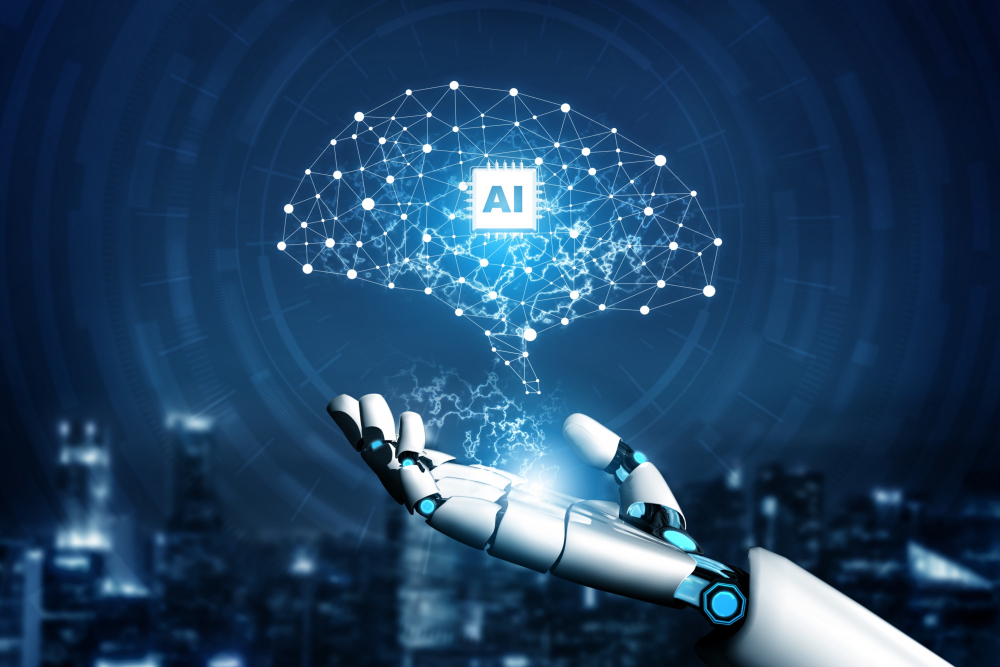Most present-day business executives are already convinced of the potential of artificial intelligence (AI). They are enticed by the prospect of effective and tailored interactions throughout the entire customer journey.
Nonetheless, the real challenge emerges once companies have embraced AI solutions: utilizing AI to enhance the customer experience. This objective holds significant importance, as 61 percent of customers are inclined to abandon brands following a disappointing customer service encounter.
Thankfully, we have several suggestions on how you can harness this technology to elevate the buyer’s journey and deliver favorable customer experiences.
What defines the AI-powered customer experience?
AI customer experience involves utilizing AI technology, including machine learning, chatbots, and conversational UX, to optimize each interaction point for maximum efficiency and convenience. Virtual assistants essentially help support agents with repetitive tasks. As a result, customers with straightforward queries receive prompt assistance, while agents have more capacity to address intricate issues.
Enhancing Customer Experience through 10 AI Strategies
Discover how leveraging artificial intelligence for customer interactions can raise satisfaction levels, retain customers, and ultimately enhance your financial performance.
1. 24/7 AI-Enabled Self-Service
Elevate your customer support with AI-driven self-service options available 24/7. Leverage chatbots to swiftly address inquiries and suggest relevant resources during customers’ product exploration phase. These AI-powered bots empower users to independently troubleshoot, bridging gaps even outside of regular hours and preventing overwhelming ticket queues. By handling routine queries, your support team gains valuable time to focus on intricate issues, expediting resolutions, and enhancing customer satisfaction.
Moreover, harness AI’s potential to streamline your help center. Through tools like Content Cues, powered by machine learning, we can efficiently categorize and identify high-impact help articles. Seamlessly adapt and optimize content to maintain its effectiveness and alignment with user needs. With AI, you can provide consistent, informed support and continuously enhance your self-service resources.
2. Offer faster solutions
Based on insights from our CX Trends Report, 65% of customers expect AI to streamline their interactions with businesses, saving them time. The advantages of incorporating AI for enhanced customer experiences include quicker initial responses, reduced handling times, and shorter wait periods. AI-driven chatbots and interactive voice response (IVR) systems contribute to efficient and contactless issue resolution.
A chatbot can promptly retrieve relevant solutions from your self-help resources to address customer queries effectively. Additionally, it can filter out spam messages, preventing agents from investing time in fake tickets. This enhancement leads to quicker first-response times by your support team, resulting in higher customer satisfaction. The IVR technology eliminates the need for customers to wait for an agent if their concern can be resolved through automation. For intricate issues necessitating human involvement, an IVR greeting can guide customers toward utilizing the callback feature. While the call ends, customers remain in the queue and can manage other tasks until an agent contacts them.
3. Reduce errors
Errors are bound to happen when your team manually handles customer support inquiries, whether due to typos or missing details. These mistakes can make your team appear unprofessional and confuse customers with incorrect information. Additionally, fixing these errors consumes valuable agent time, adding up significantly over a year.
Chatbots can reduce human error by automatically capturing customer details and providing agents with the necessary context to effectively address issues. AI’s data analysis capabilities also prevent confirmation bias, leading to more accurate predictions about customer behavior and better anticipation of customer needs.
4. Guide calls/messages to suitable agents
Routing directs customer inquiries to agents based on their expertise and the type of issue. AI analyzes messages for keywords to match skills and inform suitable agents. For example, messages from German-speaking customers could be assigned to agents proficient in that language—an application of skills-based routing. You customize these “skills,” allowing the algorithm to guide messages to the right agents—a process that can be as straightforward or intricate as needed. For instance, technical problems are directed to skilled agents who share the customer’s language. Messages can also be routed based on agent availability or working hours, ensuring timely responses. This approach optimizes support and elevates the customer experience by efficiently connecting them with appropriate agents.
5. Elevating Customer Engagement via Personalized Recommendations
By harnessing AI, companies now analyze customer behavior, demographics, and preferences, enriching onboarding with tailored product suggestions. Netflix exemplifies this by creating unique home screens for subscribers using AI. This personalized approach, which is driven by viewers’ favorite content and viewing habits, highlights similar shows and refines suggestions over time.
A pivotal statistic highlights the impact: 60% of consumers are more likely to become repeat buyers after personalized retail experiences. Amazon also thrives in this realm, employing AI to enhance search relevance and display similar items based on search history. Prime members enjoy a personal shopping service, receiving custom clothing selections based on style surveys.
These personalized encounters accelerate access to products and elevate customer experiences, fostering loyalty—a sentiment echoed by 60% of consumers, according to Segment’s 2021 Personalization report.
In a nutshell, in the dynamic landscape of customer experience, AI is poised to revolutionize interactions. By embracing AI-driven solutions, businesses can ensure seamless 24/7 self-service, faster query resolution, error reduction, precise agent routing, and personalized recommendations. These strategies enhance satisfaction, loyalty, and operational efficiency, ultimately delivering exceptional customer experiences. In an era where customer expectations are paramount, harnessing AI’s potential is the key to shaping a future where brands thrive through customer-centricity.



